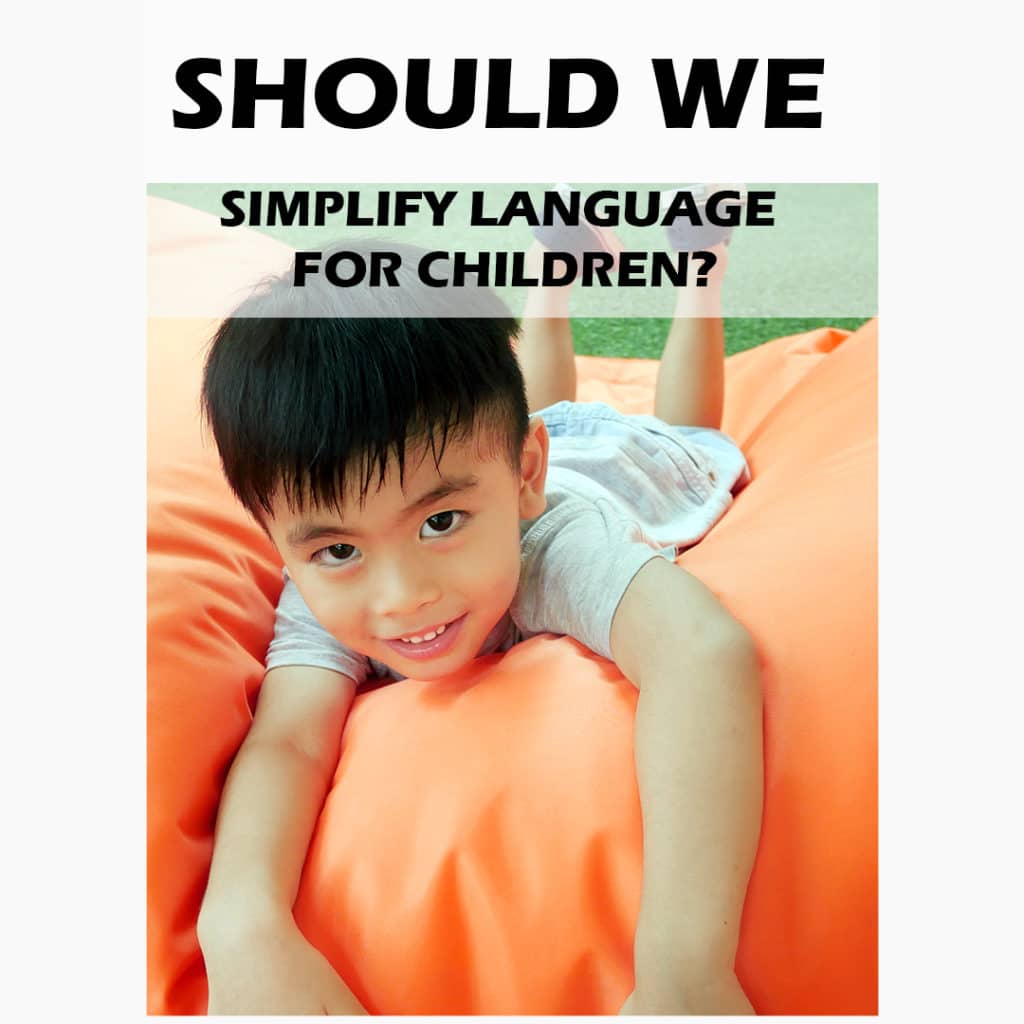Should we simplify language for children?

As adults we are generally very poor at learning new languages. According to Ronald Kotulak (1996) “during… …the first three years of life, the foundations for thinking, language, vision, attitudes, aptitudes, and other characteristics are laid down,” For this reason early childhood is the best time for your child to be picking up new languages.
It is also for this reason that we should not be “dumming down” or simplyfying difficult words for children. In fact children are much better at learning to pronounce difficult words than adults and it is much more important that they hear a range of vocabulary. This doesn’t mean that you shouldn’t use words like “nice” and “good”; they have their place, but don’t be afraid to use complicated words that are specific in meaning.
Children start off with no vocabulary at all and have to infer meaning to understand even the most simple words. Imagine that your child had never heard the word good and that you had been using “satisfying” in its place. The result would be the same, only with a different word. Using a range of words with specific meanings at an early age will help your child with both reading and writing once they begin formal education.
It is also just as important not to define every word in its simplest form. If your child asks you what a word means, in this case “satisfying” try not to automatically say it means “good”.
Kotulak, R. (1996). Inside the Brain. Andrews and McMeel.
